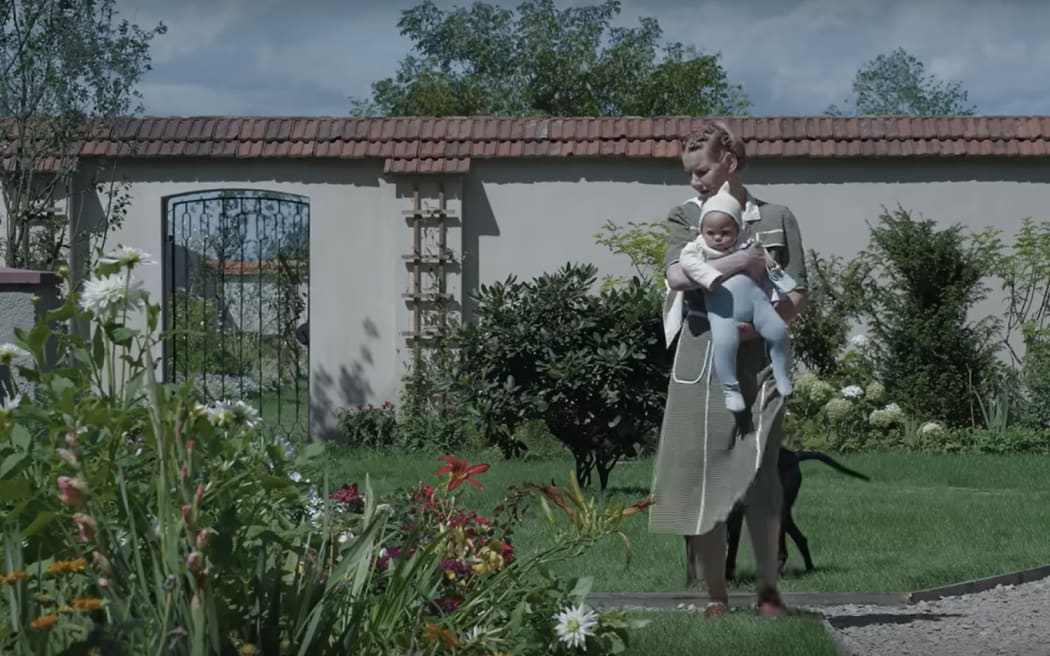Jonathan Glazer’s The Zone of Interest managed a rare double at the recent Bafta Awards – both Outstanding British Film and Best Film Not in the English Language.
Set in Poland and performed entirely in German, it was based on the 2014 novel by Martin Amis.
Writer/director Glazer has stripped it of most of its plot, so all that’s left is its nightmare wartime setting.

Photo: Screenshot
It entirely takes place at the home of the Höss family – husband Rudolf, wife Hedwig and their four or five well-behaved children.
The family has done very well for themselves. Army officer Rudolf has secured a plum job, and it shows.
Wife Hedwig has turned their house and garden into a showcase for any visitors - it’s even got a swimming pool.
A wall separates the garden from Rudolf Höss’s work – the Auschwitz concentration camp where he’s the commandant.
There are two narratives in place. What we see is the happy, domestic life of the Höss family. And in the background – unseen, only heard - is the sound of terror.
There are sudden, distant gunshots, there are muted cries from the inmates. There’s the constant noise of machinery – the efficient infrastructure of the Nazi regime that enabled in the Holocaust.
This is hardly a new story, of course, but it’s usually from the point of view of the victims. The perpetrators are shadowy monsters at the side of the picture.
Not this time. There they are, basking in the sunlight, seemingly oblivious. But of course, they’re not. Where did the fur coat come from? Who are the unpaid gardeners?
What makes The Zone of Interest impossible to shake off is how it makes undeniable evil seem somehow normal.
Just as inner-city dwellers no longer hear the constant noise of traffic, the Höss family have long since stopped looking or listening.
The film was shot in a way that accentuates the impersonal. Cameras were hidden all over the house and grounds, no lights, no visible microphones, not even a film crew. It was shot remotely from behind the wall.
Visitors call - salesmen from an appliance firm showing the latest, more efficient incinerator. The kids have their friends over – presumably the offspring of other Auschwitz officers.
One outsider - Hedwig’s mother – comes in to admire the family home and how far her daughter’s come up in the world.
She’s the only one to notice, and comment on, the wall to the camp, idly wondering whether the woman she used to clean for is in there now.
We keep waiting for their comeuppance, when they’re finally forced to confront what they’ve done. And it never comes – at least not in the way we’re expecting.
That would imply that these people are different, they’re monsters, they’re not us.
But Glazer has no intention of letting us off the hook. The performances – particularly Anatomy of a Fall’s Sandra Hüller as Hedwig - are brilliantly normal.
Who wouldn’t do this? they seem to ask. It’s just a job. Look at the benefits.
The only overt criticism in The Zone of Interest comes from the music of Mica Levy which starts unsettling and ends terrifying and hellish.
How could anybody live through this, it demands? Which of course is the message of every movie ever made about the Holocaust.

